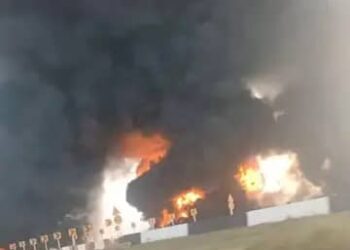Forest reserves in the Federal Capital Territory (FCT) are now abandoned, AWAAL GATA writes
Created in 1964 by the defunct Abuja Native Authority, the forests reserves in Idu and Gwagwa are believed to be one of the reserves that the Federal Capital Territory (FCT) inherited from Niger state, a state that has so many reserves.
However, after the inheritance, the FCT Administration, until 2006, was not adequately taking care of the reserves as many of their contents were said to be “worn out”
In 2006, the Administration, perhaps tired of its negligence, in 2006 turned them into plantations and expanded them.
The purpose, according to the head of public relations, Agriculture and Rural Development Secretariat of the FCTA, Abuo Francis Ojie, was to “conserve the flora and fauna of the ecosystem in the FCT and also provide timber, poles, scaffold, and firewood through thinning of the matured trees.”
He said: “These trees enhance the environmental condition of FCT, especially in this era of global warming and climate change”.
But a recent visit to the reserves by our reporter revealed that in spite of the efforts that were made in 2006 to revamp these reserves; they are now being abandoned without maintenance.
Consequently, the forests are now being used by people living around the area and passers-by as places for open defecation.
Also, many residents within these forest reserves no longer sleep with their two eyes closed, because these areas have been turned into criminal hideouts. Criminals occasionally come through the forests to attack residents of the area, especially in the night. Passers-by are also not left out of these attacks as they frequently waylaid by hoodlums, who turned these reserves into their abode.
Mohammed Tanko, a resident of the area told Blueprint that “it is quite very difficult to live around Idu Forest Reserves because criminal attack any time they want.”
According to Tanko, “It is not easy for many of us live. This forest has because a hiding place for criminals. They use it as covers, and even when we invite the police they will always escape through the forest without being caught.”
Another resident, Rabi Tanimu, told our reporter that the area is risky, especially at night, because armed robbers often emerge from the forest to rob people of their valuables.
“These forests at both Idu and Gwagwa are danger zones during the nigh hours. That is why I personally have stopped driving through that road in the night. It seems that many criminals live in those forests where come out to launch attacks on people passing at night”, she said.
Also, people are encroaching on the reserves. A part of them have now been turned into mechanic workshops, drinking and smoking joints as well as carpentry workshops.
When our reporter visited the two reserves at the weekend, none of them had barricade or fence to dissuade people from gaining access to the reserves, either for fire woods, or for any other activity.
“The way it is now, I believe that the original owners of this forest reserve have decided to forget it, since it of no value to them anymore”, a resident whom our reporter met in one of the reserves said.
He was, however told by the residents some parts of the reserves were burnt during bush burning which spread through the area. “Several trees in the reserves were burnt to ashes during the inferno,” a resident, Abu Musa, said.
But speaking to Blueprint over the menace, Ojie said that “all those illegal occupants will soon be dislodged. We are having that challenge now, but efforts are under way to curb it.”



